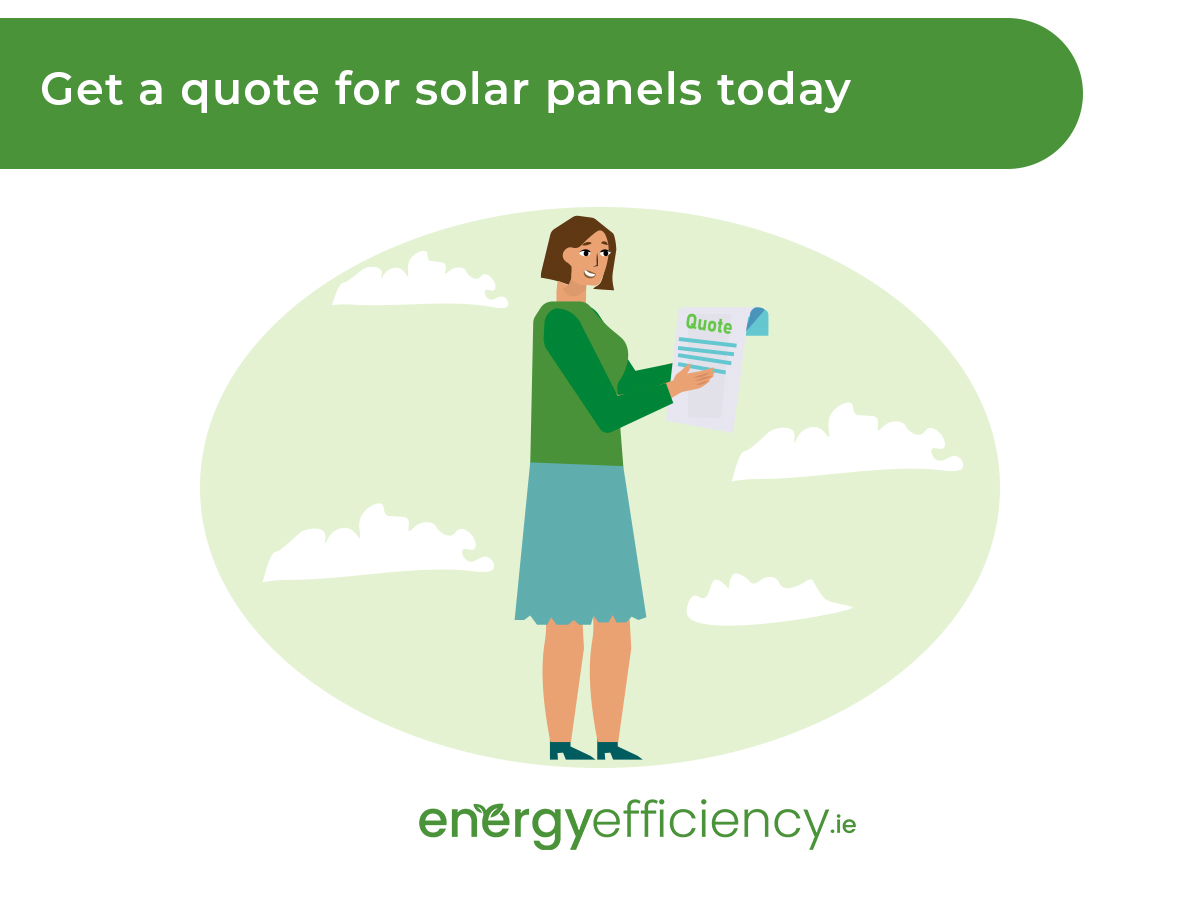The solar panel installation process is simple and straightforward, and can be completed within a matter of hours.
Once you have a quote from your chosen solar panel installation company, you could be enjoying free solar electricity within just four weeks in some cases!
Solar panels in Ireland typically cost between €5,000 and €10,000 in 2024, depending on the number of panels you wish to install.
If you want to learn more about how solar panels are installed, we’ve got you covered in this step-by-step guide which looks at the various stages involved. So let’s find out more!
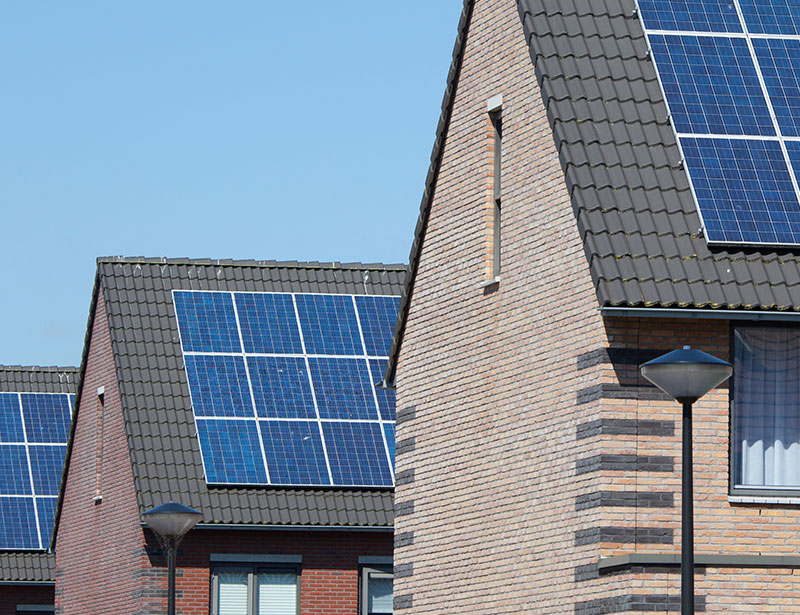
The key takeaways:
Table of content
Solar Panel Installation Costs
The cost of solar panels in Ireland depends on the size of the system, i.e. the total number of PV modules that are installed.
A typical solar panel system costs between €5,000 and €10,000 including installation, with an array of 10 individual panels costing about €7,500.
The overall costs will depend some other number of factors too, such as the quality of the PV modules themselves.
But the two most important decisions for homeowners are:
- Selecting the right number of PV panels.
- Choosing the best solar installation company.
Reliable installers will help you through the decision making process, but there are some other things that you should consider before installing a solar system.

How many solar panels do you need to install?
Deciding how many solar panels to install is extremely important as this will affect the payback period, your annual savings and the initial cost. Most homes in Ireland opt for solar systems of between 6 and 16 solar panels.
The exact number of panels that is right for you will depend on your electricity bills and how much you want to save. A good target is 75% of your annual energy bills being covered by solar.
In Ireland, the average household electricity consumption is 4,200 kWh, according to the Commission for Regulation of Utilities (CRU). So the number of solar panels needed to generate 3,150 kWh of electricity (75% of the average) is between 8 and 10.
Check out our solar panel calculator, which is a fantastic tool to find out how many solar panels you’d require for your needs.
Choosing the Best Solar PV Installer
To help you decide how many solar panels to install, choosing a reliable solar panel installer is crucial to ensure a smooth process from start to finish. There are a few ways that you can narrow down the search for the best solar installation company.
5 Star Reviews
The best solar companies have a track record of delivering for their customers. Our network of vetted installers exclusively features those who have more than 1,000 successful installations.
Company Size
Larger companies typically have more scope to offer after sales support, and more resources to ensure everything goes right throughout the process from quote to installation.
Panel Quality
It is essential that the quality of materials used by the solar installer is first class. Top quality panels are more efficient, and typically come with a warranty of 25 years.
Things to Consider Before Installing Solar Panels
As well as choosing the right number of panels and the best installer, there are some other things to think about pre-installation, including roof size, orientation, and SEAI grants.
How Much Roof Space is Available
The amount of roof space you have can limit the number of panels you can have installed. Eight panels would take up around 17 m2 of roof space, 10 panels would require 20m2, and 12 panels would need 25m2.
This will depend on the size of the panels, but most panels are of a similar size. For example, LONGi Hi-Mo X6 solar panels are 1722mm x 1134 mm, while BAUER Glass solar panels are 1762mm x 1134mm.
Roof Orientation
The roof’s orientation is also important to consider. South facing roofs are the best for solar power in Ireland as they get the most direct sunlight overall. East-west facing roofs are also suitable, and will get the most light in the mornings and evenings, while north facing roofs are not ideal for solar panels.
The small minority of homes with flat rooftops can have solar panels oriented in any direction.
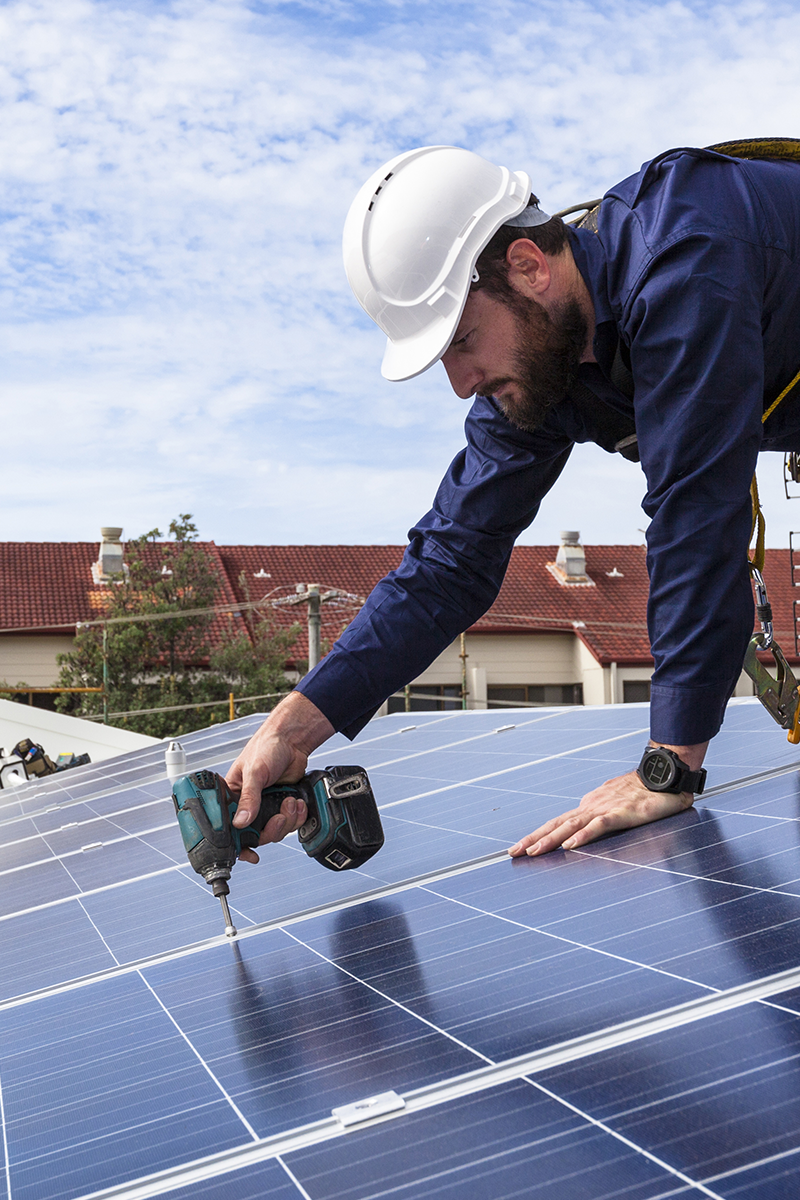
SEAI Residential Solar Grants
There has never been a better time to install solar panels in Ireland, especially as the SEAI home solar grant is set to be reduced again at the start of 2025. This means that if you install solar panels in 2024, you will likely receive the full maximum residential solar grant amount of €2,100 before it is cut to €1,800.
Solar Panel Installation Steps
The installation process is quick and straightforward, and it will cause minimal disruption to your life as your solar installer takes care of everything behind the scenes. But it’s always good to be aware of the different stages of the journey.
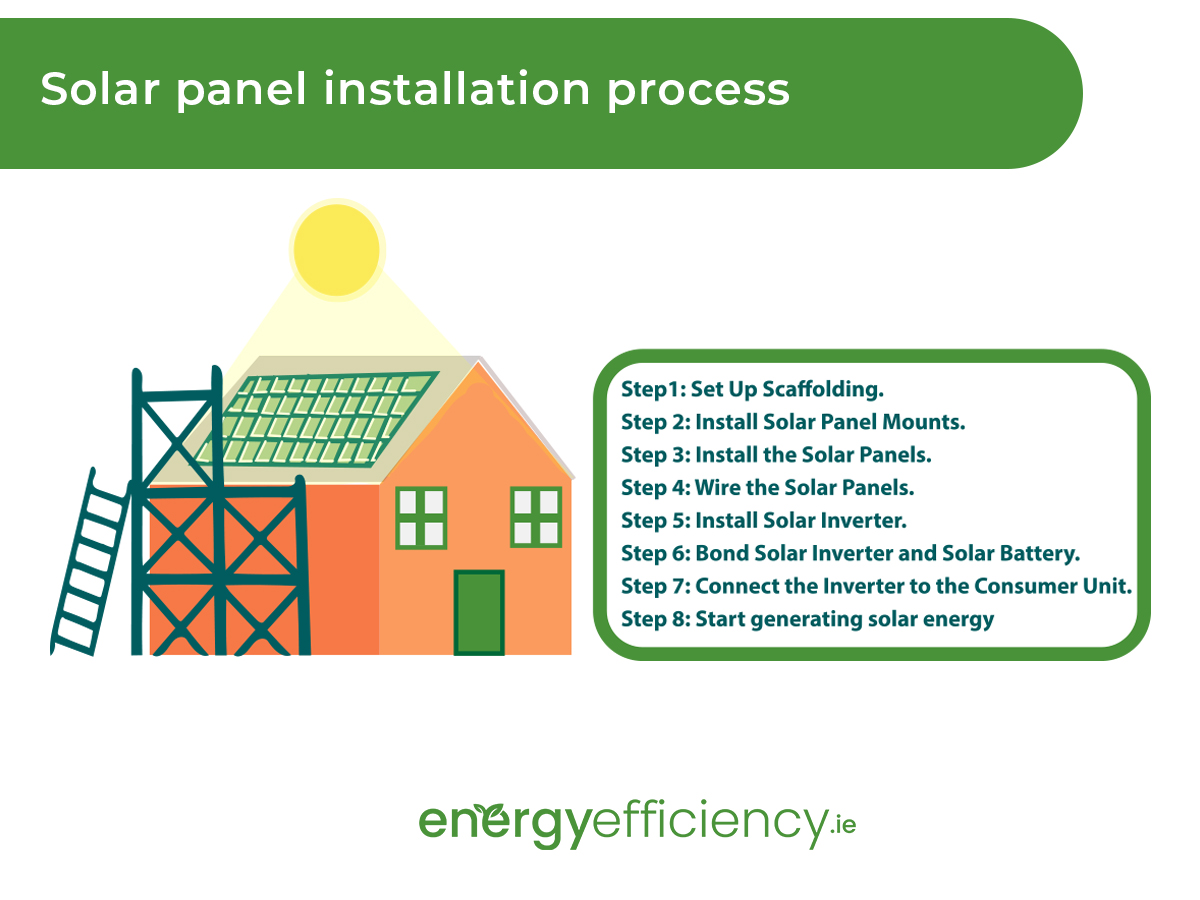
7 Years
A typical solar installation is fully paid back within 7 years. All solar panels we recommend are under warranty for 25 years, so you will enjoy at least 17 years of free energy generation.
0% VAT
As of 10 May 2023, the government has removed all VAT on solar installation and solar panel supply. This means solar has never been more affordable!
Government Grants
There is a range of government grants available for all new solar installations. Our team will guide you through the application process.
Can you install solar panels DIY?
It is technically be possible for people to install their own solar PV systems, but it is highly recommended that you leave the job to a qualified installer.
Solar energy installation is a complicated task that will require heavy physical labour on your rooftop, and extensive knowledge of electrical wiring to connect the system.
In addition, in order to qualify for SEAI grant funding, the solar system must be installed by a registered contractor.
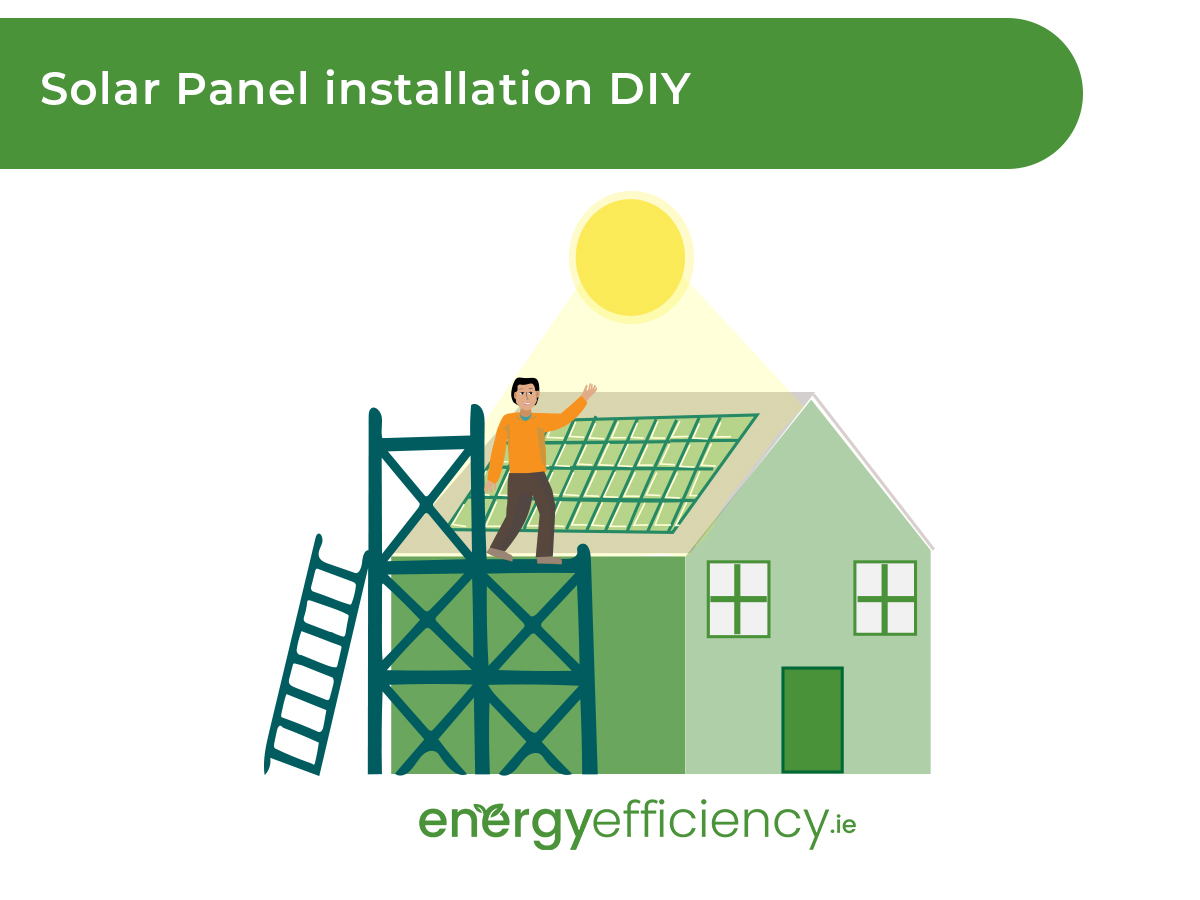
Planning Permission for Solar Panel Installation
Planning permission is no longer required for rooftop solar panels in Ireland, aside from a few restrictions depending on your location.
In most areas homeowners and businesses are allowed to erect unlimited amounts of rooftop solar panels without needing planning permission.
In 43 Solar Safeguarding Zones (SSZs) near airports, aerodromes, and helipads, solar panel installations of up to 300m² are allowed without needing planning permission.
For ground-mounted solar PV panels, up to 25m² worth of panels can be erected without planning permission for private houses, and 75m² for all other types of buildings except apartments.
Post Installation Solar PV Maintenance
Solar panel maintenance costs are typically low, as they just need to be kept clean. Rain can clear dust and debris away, but you should carry out an annual clean to make sure they are working to their full potential.
This is a relatively simple job – and unlike installing the panels – you can do it ‘DIY’ if you wish to. All you need is biodegradable soap and a bucket of water with a a soft cloth or sponge. Just ensure to be gentle and use products and materials that will not scratch the panels.
Your solar panels should also be inspected every five years or so by an expert to ensure that everything is in working order, ensuring maximum efficiency.
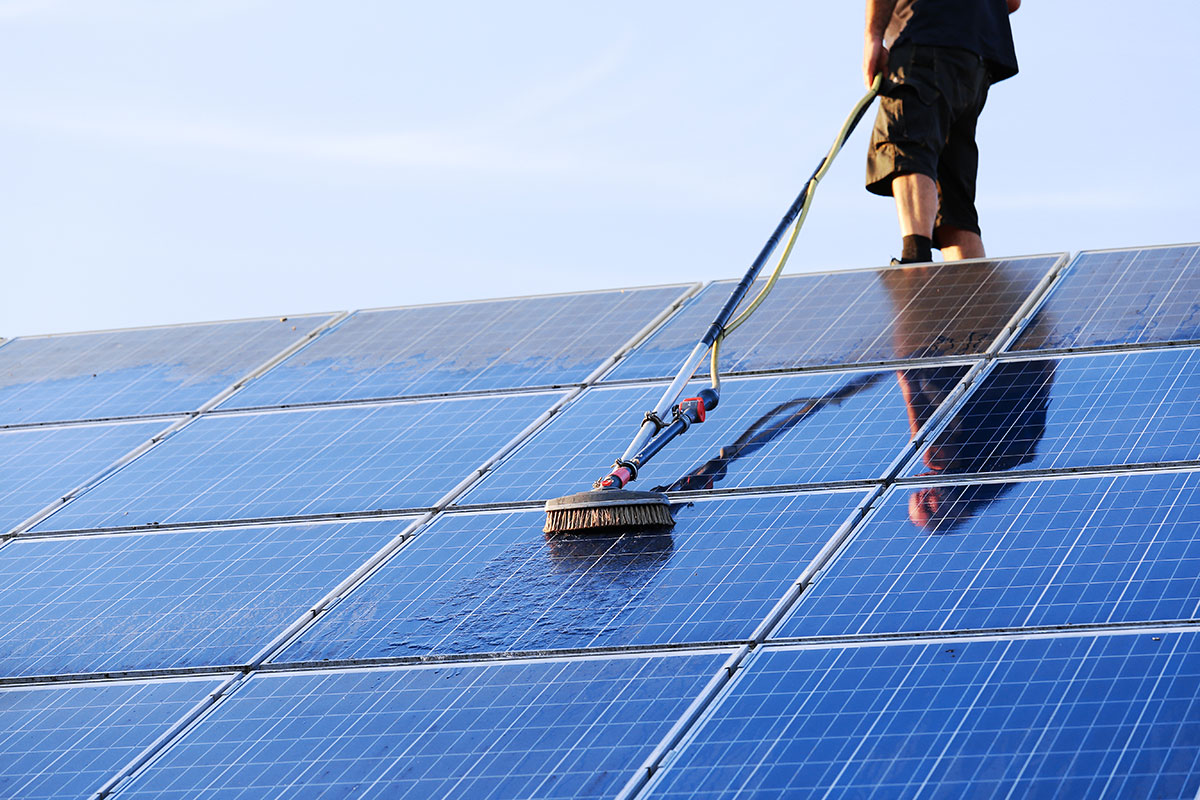
FAQs

Get a Solar Panel Quote Today
Get a FREE quote today on what it would cost to have solar panels installed on your home.
Find out why thousands of Irish home owners are making the switch to solar energy.
